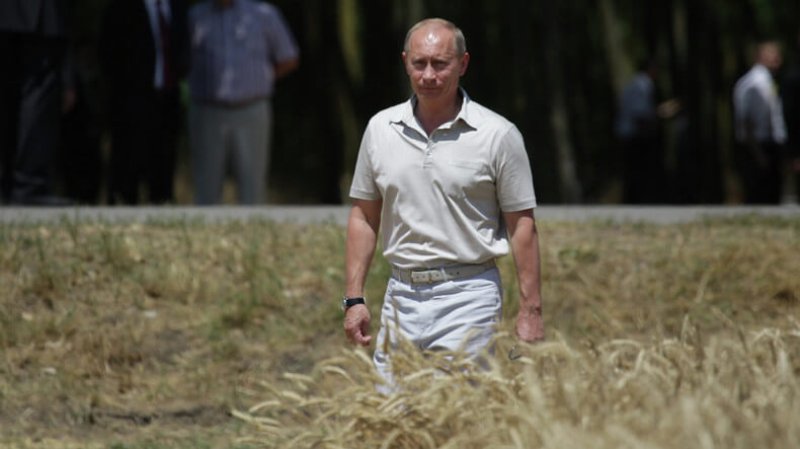Deep in the Caucasus, downriver from Europe’s highest peak, North Korean women roam Soviet-era hothouses growing what tycoon Vladimir Evtushenkov is betting will be his next big bounty: the T-34 battle tomato.
The plump hybrids, named for the fearsome tank that helped trounce Hitler, are the pride of the Yuzhny Agricultural Complex, a mass of greenhouses the size of 2,300 football fields between the Black and Caspian seas. Watered by melting ice from towering Mount Elbrus, they and other strains of the fruit are grown here by the millions and trucked mainly to Moscow, 18 hours’ journey north.
Evtushenkov, at 67 the oldest of the top 40 Russians in the Bloomberg Billionaires Index, has impeccable timing.
…
After Turkey downed a Russian fighter jet along the Syrian border … Moscow responded by banning a range of produce from its former ally, leading authorities to broadcast videos of inspectors enthusiastically bulldozing Turkish tomatoes. Just a few weeks later, with Yuzhny’s biggest competitor swept from the market, Evtushenkov acquired the complex and the organic tomatoes and cucumbers it produces for an undisclosed sum.
…
“Russia is able to become the world’s largest supplier of healthy, ecologically clean and high-quality food, which Western producers have long lost,” Putin told parliament after the Turkish ban was imposed.
Russia last year joined dozens of nations in banning the commercial planting of genetically modified organisms and has since barred GMO imports — putting Putin at the vanguard of an increasingly vocal global movement.
Read full, original post: Putin Is Growing Organic Power One T-34 Tank-Tomato at a Time































